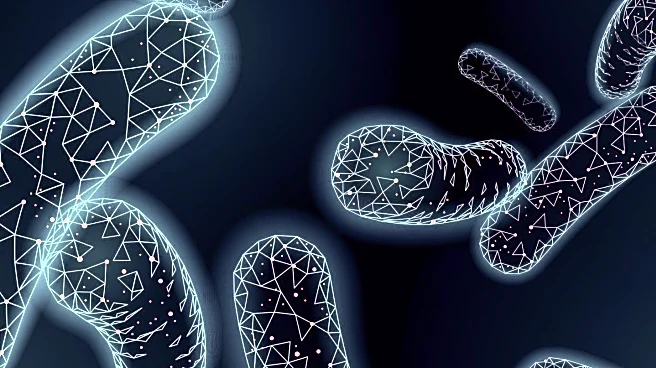What's Happening?
Recent research has highlighted the complex relationships between microbiota and short chain fatty acids (SCFAs) in patients with irritable bowel syndrome (IBS). The study utilized a dual-omics approach to explore how specific microbiome features correlate with SCFA output, revealing differences across IBS subtypes. Key findings suggest that certain bacterial species, such as R. gnavus and Dorea sp., play significant roles in IBS-D pathogenesis through mechanisms like serotonin biosynthesis and mucin degradation. The study also identified microbial features that may contribute to symptom variations and pathophysiological mechanisms across IBS subtypes, emphasizing the importance of microbial metabolism in IBS-D.
Why It's Important?
Understanding the microbiome's role in IBS is crucial for developing targeted treatments. The identification of specific microbial targets offers potential pathways for modulating the microbiome to alleviate IBS symptoms. This research could lead to more effective therapies, particularly for IBS-D, which is characterized by increased metabolic activity and reduced microbial diversity. By focusing on microbial interactions and metabolic outputs, healthcare providers may improve patient outcomes and reduce the prevalence of IBS symptoms.
What's Next?
Future research should investigate the effects of bacterial cross-feeding and microbial conversions on the microbiota-mucosal interface. This could expose vulnerabilities that drive IBS pathogenesis and inform the development of new therapeutic strategies. Additionally, integrating complementary strategies to study microbial metabolites will be crucial for gathering actionable insights into the impact of the microbiome in IBS.
Beyond the Headlines
The study highlights the potential for personalized medicine approaches in treating IBS, considering individual microbiome compositions and their interactions with dietary and host-derived substrates. This could lead to more tailored and effective treatment plans for IBS patients.










